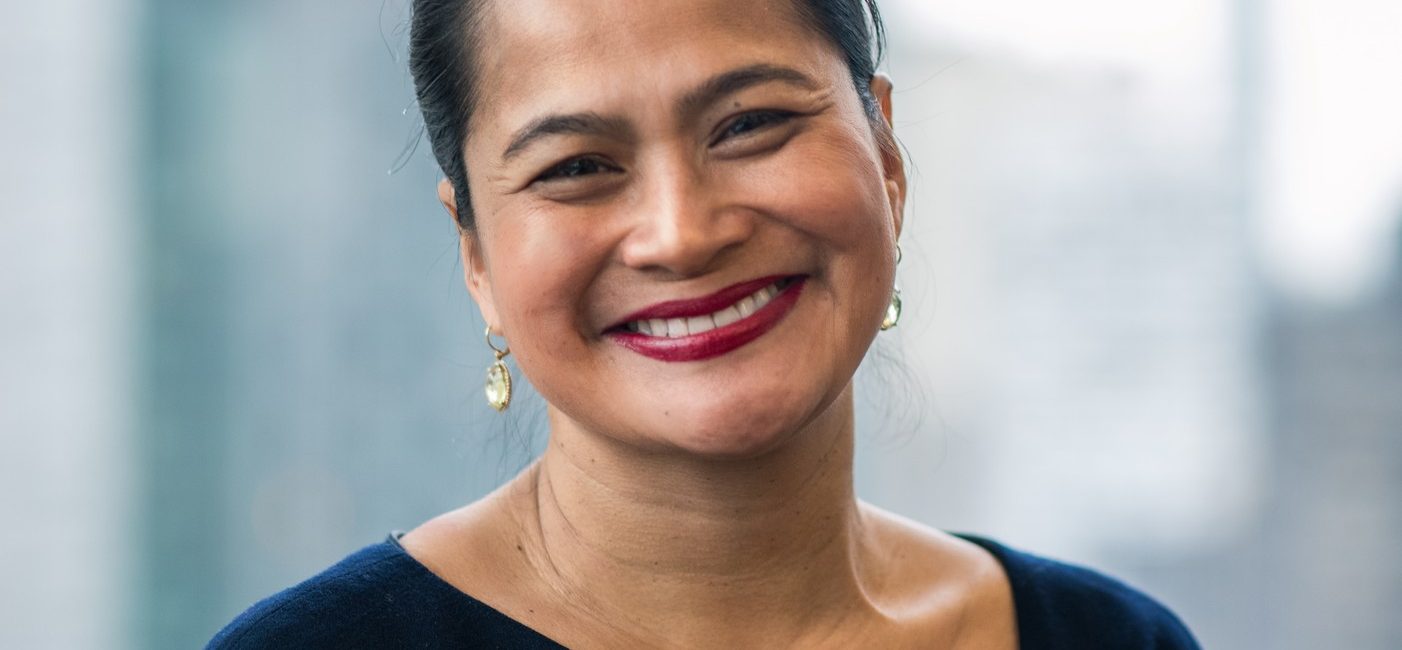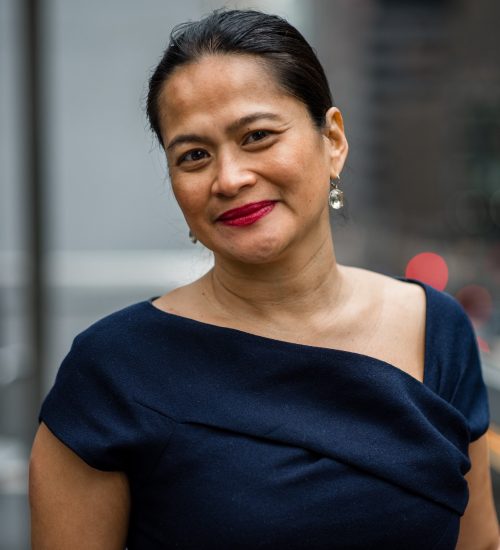By Evan J. Cutts
With a keen vision for creating a more inclusive and innovative world, Sweet Joy Hachuela co-founded The Medici Group in 2006 with global thought leader Frans Johansson. “Our vision is a world where we use our differences to change it,” she explains. “Our mission is to create that world.” As Co-Founder and Chief Growth Officer, Sweet Joy pinpoints growth opportunities for her company in order to provide exponential value to her clients.
Since the firm’s inception, she has served in several capacities: managing operations, overseeing the firm’s consulting services, and more recently, leading Medici’s marketing and business development functions as Chief Growth Officer. “Yet one of the reasons I am most passionate about this type of work,” she begins “is that it enables underrepresented voices to become active contributors of conversations they might have been excluded from previously.” At The Medici Group, inclusion is imperative and for Sweet Joy, there is more than enough room at the table. Read further for her refreshing insights into the shifting landscape of diversity & inclusion.
EJC: What are some common misconceptions about what you do?
People tend to equate diversity & inclusion (D&I) as something strictly and exclusively related to HR and in some cases, Corporate Social Responsibility. D&I stands little chance at capturing the attention and commitment of the C-Level when that is the case. At Medici, we leverage D&I to build and sustain corporate strategy and facilitate organizational transformation with the full support and commitment of top leadership.
Can you identify a common pitfall that organizations encounter in their D&I strategy? How can they be avoided?
Many companies will start D&I initiatives or design strategies of this kind because other companies have them. When the impetus is almost strictly external, the D&I strategy fails to have a real connection to the business and the organization’s mission and purpose.
D&I needs to be developed and driven as a strategic imperative for the business—like that of growing in new markets, developing innovative business models, and/or creating an engaged workforce. This is largely because you want to ensure D&I is seen and adopted by leaders as a strategic priority that they cannot lead successfully without.
In your opinion, what skills are necessary to be an effective leader?
The key to being an effective leader is being your authentic self while remaining open to new ideas. I also believe that leaders should be highly empathetic and compassionate towards their employees, their customers, and themselves. I try to do this by asking my team and our stakeholders how I can help them in achieving the goals they have, rather than telling them how to accomplish their objectives. Lastly, leaders need to learn how to look at the big picture to craft strategy and give direction because running a successful and innovative business requires a lot of reframing and pivoting.
What do you want your legacy to be?
I’d like for people everywhere, including my two young daughters, to experience a world where they feel comfortable and empowered for being who they are; and that through connecting with diverse perspectives they are able to achieve their goals and dreams. I believe that the work The Medici Group is doing is helping create that world.
How are millennials and Gen Zer’s impacting your industry?
Millennials are graduating college with huge amounts of debt and according to a Pew Research Center 2019 report, their earnings have remained flat for the past 50 years. Employers must become acutely aware of this and adjust the structure of employment accordingly. Some companies, for example, are providing compensation packages that help employees pay off their student debt.
Aside from financial constraints, these pressures can take a toll on people’s mental and emotional health. Employers should question whether their physical spaces, employee benefits, and workplace flexibility are truly capable of supporting new employees through their journey. On the other hand, Millennials and Gen Z’ers are increasingly opting to skip out on college, which means that employers need to reevaluate hiring criteria, qualifications, and how they define expertise to ensure that they do not lose out on talent.
Lastly, Millennials and Gen Z’ers are also greatly motivated by a sense of mission and purpose. Thus, they are more likely to work for a company that aligns with their values and/or makes them feel like they are part of something greater than themselves, rather than accept a job offer with a higher salary from a company they do not connect to. Organizations must look to define, in the most authentic of ways, what their purpose is and ensure that they use that lens to attract and retain young talent.
What does being a person of color in 2019 mean to you?
It is an interesting time to be an immigrant, a person of color, and a woman (especially all at the same time) as it makes you acutely aware of efforts aimed at suppressing people’s voices and rights. Being a person of color makes it impossible to ignore the forces within society that are trying to prevent diverse people and forms of thoughts to thrive in our country. These circumstances nonetheless, drives my commitment to D&I as it is a powerful force that can help people fight against injustice and make the world a better place.



